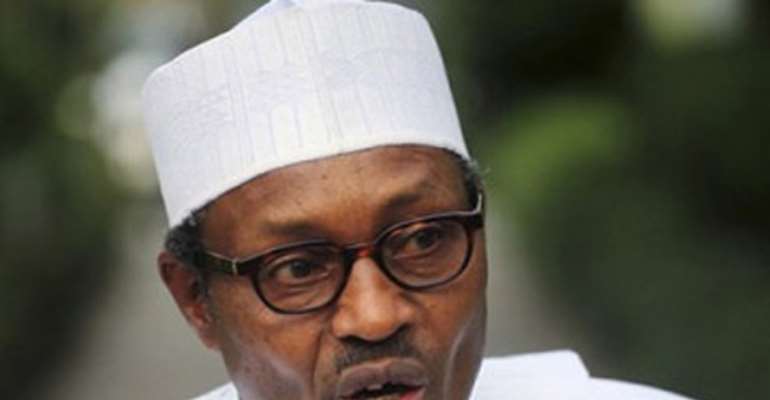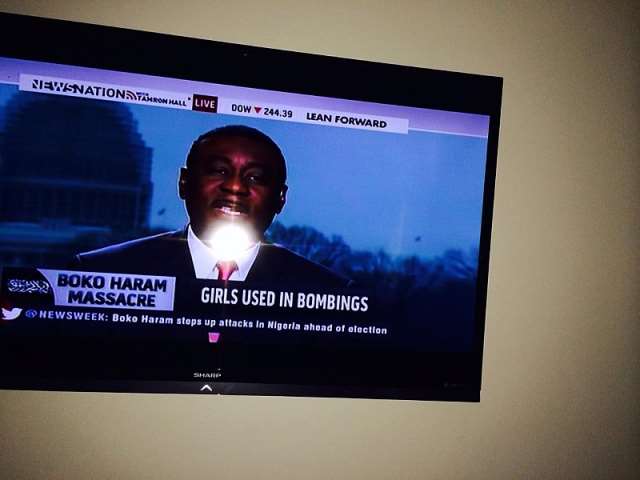Open Letter to President Mohammadu Buhari

S. Okey Mbonu
Washington, DC
April 7, 2016
President Mohammadu Buhari
Aso Rock Villa
Abuja, FCT Nigeria
Dear Mr. President,
I have just returned as leader of a small Nigerian-American delegation, from a 2 week tour of Nigeria, on behalf of the Nigerian-American Leadership Council (NAL Council web: www.nalcouncil.org). This trip afforded the Nigerian-American community to get a no holds-barred assessment of the situation on the ground in Nigeria; and the substantial challenges your administration faces, as you gain traction in your first term as civilian president of Nigeria.
Mr. President, it will be stating the obvious to say that the state of the nation is dire. Nevertheless, all hope is not lost, especially, if you pay attention in the right areas of governance. This letter includes a highly abridged summary of our report, as the policy details will be too unwieldy to be published as an open letter.
Introduction
Our initial observation upon arriving Nigeria, is that airport security, including the total screening of passengers has been brought up to international standards nationwide. This is a good first impression, and provides a measure of comfort to visitors and investors alike. However, our trips across the various states, show that extortion by law enforcement officers (the police), are alive and well across the country.
This indicates that corruption in Nigeria is far deeper than the average casual visitor to Abuja can imagine. Also, the security personnel need to have a stronger show of force in the many markets in Abuja. The markets and other public spaces are in our observation highly vulnerable, especially to a lone attacker or suicide bomber.
Your minister of the interior whose ministry is responsible for police affairs has a lot on his plate. It is apparently going to take institutional changes to police welfare, to deter the police from extortion at the local level. The police force is also particularly aggressive in the following states in Nigeria: Anambra, Rivers, Delta, and Lagos.
We find no justification for aggressive policing in the above states, especially, given that states like Anambra are currently ahead of several states in security of lives and property. These matters need to be discussed in your executive council meetings, because no investor including Nigerians in Diaspora, will lay down valuable investments where insecurity exists, or where undue harassment from law enforcement exists.
The Economy
The economy should obviously be of prime importance to your administration. Our professional observation is that you need to focus on growing the economy of Nigeria from within, rather that hoping that crude prices will bounce back. The oil boom is truly over, and pursuant to the frenetic search for new versions of renewable energy; oil will be even less relevant in the near future. The good thing is that Nigeria has a robust internal economy, which from the look of things is still largely unregulated.
The idea that your administration is going to find a way to create 10 million or more jobs for the teaming unemployed youth of Nigeria is truly unrealistic. The truly realistic thing to do is to prepare many, among the teeming youth of Nigeria for “self-employment” or entrepreneurship. Once the concept of “self-employment” is formalized and regulated in the economy, then you will see revenues pour into the economy via “recirculating consumption”. Small businesses create employment and self-employment faster than large corporations or government ever could.
Insecurity and the Need for Education, Training, and Skills Acquisition
Mr. President, your government must invest in youth and unemployed adult training. The mission to train and retrain Nigerian youth and adults, to participate in growing the economy is critical. The success of your term as president may very well be affected by this singular focus. The acquisition of education or training, or the lack of, is also directly tied to the security or the insecurity of the entire nation. The necessary training does not have to be academic; rather it should be skill-focused.
A trained “self-employed” electrician, mechanic, bricklayer, mason, caterer, artisan, tailor, restaurateur, hairdresser, farmer, computer technician, or software engineer, puts revenue back into the economy; as they spend money to acquire other goods and services. In receiving revenues based on services they provide, the self-employed thereby re-circle resources in the economy, via their consumption.
Right now, our observations in Nigeria show that there are many unproductive people in the country. This exposes the youth to questionable doctrines such as Boko Haram and other causes of insecurity.
Even though productivity in Nigeria varies from region to region, however, many Nigerians are used to handouts, instead of savoring the result of a day’s labor. This is precisely why some states or regions enjoy a higher standard of living than others. It is no rocket science to understand that no society prospers where people sit-back and wait for handouts, as in some states in Nigeria.
We realize that Nigerians are mostly very religiously people, whether they are Muslims or Christians; however, no religion states that God wants people to stay idle all day long, and collect handouts in the evening.
The culture of handouts in high and low places, without commensurate productivity in Nigeria, must be strongly dissuaded in all cultures in Nigeria; anything less means that the less prosperous states will begin to envy the prosperous states and ultimately animosity and strife will result.
Reforming Regulatory Oversight
Interviews with the business community, at the macro and micro levels, indicate that there is discontent in the regulatory environment, and the ease of doing business, including corporate registrations. If an average business person or investor cannot go online and perform a name search at the Corporate Affairs Commission website; in 10 minutes or less, in this day and age, then the business environment is still in the 20th century mode, and requires urgent reform.
On Electric Energy and Automotive Fuel
Well Mr. President, in-spite of your frequent travels outside Nigeria, I am sure you are fully aware of, and personally experience the shortage of electricity in Nigeria. The staff at the Aso Villa certainly has to contend with generator power at least 50% of the time. We know this, because every hotel or residence we visited over a 2 weeks tour was powered by generators at least 50% of the time.
Suffice it to say that no nation survives on every household providing its own power. It is utterly expensive for every house to have its own generator. The emissions the generators release on the atmosphere in Nigeria, poisons the breathable air in Nigeria. The emissions probably reduces everyone’s lifespan in Nigeria by about 5 years, regardless of how wealthy or poor they are.
We note that your petroleum minister Dr. Ibe Kachikwu is working frenetically to ensure the supply of automotive fuel for Nigerians. Dr. Kachikwu’s job is a tough one, and under the circumstances, we do not envy Dr. Kachikwu. We hope he and his team get it right very soon, before you have a riot on your hands. Ordinarily, a petroleum producing country should not be facing an automotive fuel crisis, but the causes of this debacle will be too complex for us to discuss here at this time. However, we wish you luck.
On Anti-Corruption Issues
I would say that most of the world outside Nigeria, believe that you are doing a decent job on the anti-corruption front. I can only say that you should remain steadfast in your stance on corruption; and with the courts under greater global scrutiny, we hope the current anti-corruption stance will produce some convictions.
On Biafra and Related Militancy in the Niger Delta
Mr. President, on these matters of ethnic agitations for self-governance, let us not make a molehill into a mountain, or call a stream an Ocean, before they are acknowledged as such. If the grievances of the agitators are of abiding validity, then a political dialogue should resolve many of the issues.
We expect you not to interfere in the facts and logic that the courts have applied, in partially resolving the matters so far. You must be seen as a president who tolerates dissent without rancor. A leader cannot afford to hate, because hate clouds the mind, and rancor interferes with strategic thinking, which is always needed for the true “big issues” facing the country, such as I have outlined above.
Mr. President, I will not overwhelm you by elucidating on more issues, however, if you address the important issues above, you may be on your way to a decent score at the end of your term.
Good luck!
The Author S. Okey Mbonu is the Executive Director of Washington DC-based Nigerian-American Leadership Council (NAL Council) Web: www.nalcouncil.org. Mbonu obtained his Doctor of Jurisprudence from the School of Law at the University of Washington DC; he also previously served as Commissioner for Housing & Community Development in Maryland, USA (the first African to be appointed to such a policy-making position in Maryland).
Mbonu frequently testifies at the US Congress, as an expert on Nigeria and US-Nigeria matters. He also frequently appears as Expert Analyst on US Media and was acknowledged; “A Powerful Voice on US-Nigerian Affairs” by US Media Giant, MSNBC (February 14, 2015). The NAL Council is the pre-eminent think-tank in Washington that is focused on US-Nigeria relations, and Nigerian matters. Mbonu can be reached at: [email protected] . Tel: 202 379-2848, Ext. 101 or Ext. 301

